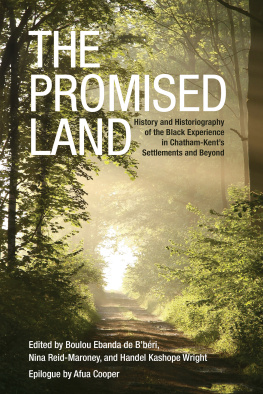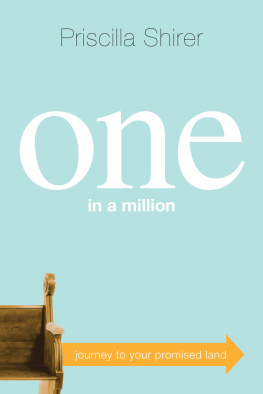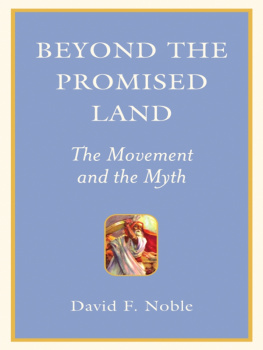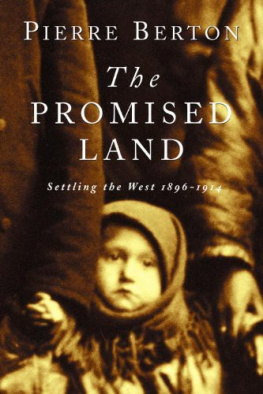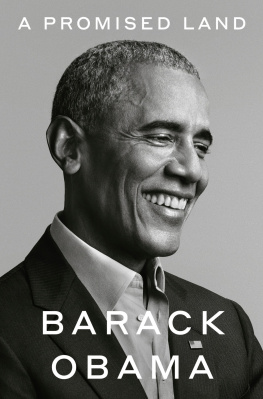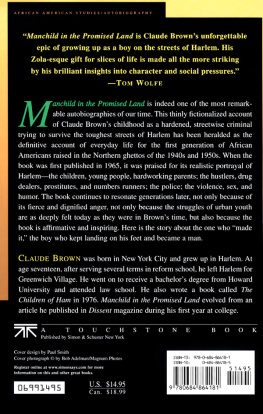L EADING T HEM TO THE P ROMISED L AND
NEW STUDIES IN U.S. FOREIGN RELATIONS
Mary Ann Heiss, editor
The Birth of Development: How the World Bank, Food and Agriculture Organization, and World Health Organization Changed the World, 19451965
A MY L. S. S TAPLES
Colombia and the United States: The Making of an Inter-American Alliance, 19391960
B RADLEY L YNN C OLEMAN
NATO and the Warsaw Pact: Intrabloc Conflicts
E DITED BY M ARY A NN H EISS AND S. V ICTOR P APACOSMA
Caution and Cooperation: The American Civil War in British-American Relations
P HILLIP E. M YERS
The Will to Believe: Woodrow Wilson, World War I, and Americas Strategy for Peace and Security
R OSS A. K ENNEDY
Leading Them to the Promised Land: Woodrow Wilson, Covenant Theology, and the Mexican Revolution, 19131915
M ARK B ENBOW
Leading Them
to the Promised Land
Woodrow Wilson, Covenant Theology, and the
Mexican Revolution, 19131915
M ARK B ENBOW
The Kent State University Press
Kent, Ohio
2010 by The Kent State University Press, Kent, Ohio 44242
ALL RIGHTS RESERVED
Library of Congress Catalog Card Number 2009047149
ISBN 978-0-60635-025-6
Manufactured in the United States of America
Library of Congress Cataloging-in-Publication Data
Benbow, Mark.
Leading them to the promised land: Woodrow Wilson, covenant theology, and the Mexican Revolution, 19131915 / Mark Benbow.
p. cm. (New studies in U.S. foreign relations)
Includes bibliographical references and index.
ISBN 978-1-60635-025-6 (hardback: alk. paper)
1. Wilson, Woodrow, 18561924Religion.
2. Wilson, Woodrow, 18561924Political and social views.
3. United StatesForeign relationsMexico.
4. MexicoForeign relationsUnited States.
5. MexicoHistory19101946.
6. Christianity and politicsPresbyterian ChurchUnited StatesHistory20th century.
I. Title.
E 767.1. B 46 2010
973.913092dc22
2009047149
British Library Cataloging-in-Publication data are available.
14 13 12 11 10 5 4 3 2 1
Contents
Acknowledgments
I wish to acknowledge many of those who gave me support and help in writing this book. Any mistakes that crept into my writing are, of course, my fault and not theirs.
Kent State University Press was wonderfully supportive. Joyce Harrison and my editor, Dr. Mary Ann Heiss, gave a nervous first-time author lots of support (and many suggestions), as did Mary Young, the Presss managing editor.
Thank you to Dr. John Mulder, both for his book Woodrow Wilson: The Years of Preparation, which inspired me to study Wilsons religious background, and for his kind words regarding my dissertation, from which this book evolved. Dr. Mulder put me in contact with Dr. Malcolm Magee, who, like me and Dr. John Rinehart, wrote his dissertation on Wilsons covenant theology; the fact that these fellow historians regarded my dissertation as a useful source gave me the push I needed to develop my research into this book.
Several scholars of Mexican history were kind enough to help me during my initial research. Dr. Douglas Richmond answered my questions about Carranzas nationalism. Dr. Louis Sadler generously responded to my letter with a lengthy phone call to review sources with me. Dr. Friedrich Katz not only spent valuable phone time answering my questions but also sat with me at an AHA conference to discuss my research. Dr. Barbara Tenenbaum at the Library of Congresss Hispanic Reading Room answered questions, discussed my ideas, and otherwise proved invaluable. Her colleagues in the Manuscript Division, the Newspaper Reading Room, the Prints and Photographs Division, the Jefferson Reading Room, and the Motion Picture Collection likewise gave me invaluable help in tracking down and recommending material. I used several translators for the Mexican newspapers I found among the State Department papers in the archives. Maryanne Kasper in particular spent a lot of time on the many articles I gave her, and even found one in a 1910 Spanish magazine for me.
The staff at the National Archives were helpful in tracking down material in both the commonly used and rarely seen collections. I am grateful for the patience of the staff members in the microfilm reading room in keeping my overworked microfilm copying machine up and running above and beyond the load it was normally asked to handle.
I have been fortunate to study under a number of exceptional professors. Dr. Robert Bowers at Hanover College taught me a lot about being a history teacher. I regret that he passed away before I completed my graduate studies and that I was the last of many history Ph.D. candidates he inspired. Dr. John Trout at Hanover taught me how much fun it is to be a historian, a lesson that has proved continually helpful in both teaching and researching. Drs. Allen Spetter and Richard Swann at Wright State gave me the confidence to go for the Ph.D. and prepared me for a demanding doctoral program.
My parents helped me through years of school and never asked, Arent you finished yet? They also scooped up every piece of Wilsonia in the antique stores of two states for me to furnish my office with and to give me inspiration.
Of all the professors I studied under, I owe the most by far to Ohio Universitys Dr. Alonzo Hamby. His encouragement, patience, and faith were invaluable to me in finishing this book, and I owe him a debt I simply can never, ever repay. Thank you, sir.
My biggest debt is to my wife, Annette. Her love, support, and faith gave me all the strength I could ever want, and she spent more hours than either of us want to repeat copying books, articles, newspapers, and documents for me over the years. She also spent uncounted hours editing and reviewing my drafts. Our vacations centered on what library I could visit, and she was always there, always helping.
It is to these last two, Alonzo Hamby and my wife, Annette, that I dedicate this book.
Introduction
President Woodrow Wilsons foreign policy has undergone frequent examination since he left office in 1921, although little agreement exists on his motivations or his relative successes and failures. Most historians studying Wilson have noted his deep Christian faith, but few have differentiated his specific Presbyterian Covenanter heritage from a general nineteenth-century Protestantism. Even Wilsons most prominent biographer, Arthur Link, neglects this particular aspect of Wilson, favoring instead a more generalized ecumenical liberal interpretation of Wilsons motives. In this study I examine Wilsons assumptions and his personal ideologywhat Alexander George labeled an operational codeby examining Wilsons policy toward Mexico during that countrys revolution. I will show that Wilsons operational code was founded predominantly on Presbyterian covenant theology. Covenant principles permeated his political decisions, his tactics, and his long-term diplomatic objectives.
Woodrow Wilsons Presbyterian background made it natural for him to rely on orderly, voluntary agreements to manage a society or organization. His grounding in covenant theology further led him to believe that Christians had a duty to fulfill Gods will on earth. While he did not rely exclusively on these ideas, he placed special emphasis on them in his administrations management of foreign affairs. They formed a template for him to use in evaluating events, especially during crises when he had little contemplative time before making a decision. Wilsons deep religious beliefs and personal ideology helped shape his diplomatic goals but were themselves constantly being tested by the need to deal effectively with practical foreign policy contradictions and the dilemma of the revolutionary whirlpool in Mexico.





